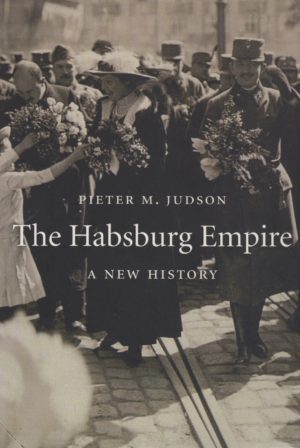
My pal, Dave Michelson, gave me this tome to read. The thought behind Dave’s gesture was that, since both of us are going to Europe with a group of friends this August, and both of us are going to search for familial roots from the former Austro-Hungarian Empire (he is of Austrian descent and I am 1/4 Slovenian), it would do me good to read some history of the empire. So I did.
Thing is, this book is, well, informative, a bit of a slog. Judson’s prose style is very academic, which can sometimes bog things down a bit. In addition, the author is most concerned with the premise behind this book: that scholars who view the Hapsburg Empire as a decayed, hapless enterprise that devolved until it was forced to defend itself from internal and external enemies, which resulted in WW I, “the war to end all wars,” are not totally correct. His main thrust is that the Empire was, in fact, progressive and modern and on the road to democracy despite its history as a monarchy. It’s fine if Judson wants to impress his readers with facts and statistics and the politics behind his view but what we are left with is pretty dull and dry. I was looking for the author to incorporate additional facts and history beyond recitation of political intrigue and the adaptations made by the rulers of the empire (including non-royal legislators) towards a more democratic future. That never happened and it made for a pretty slow go.
In addition, two themes that weren’t touched upon in the book but I was interested to read the author’s perspective about were; What sort of sanctions and/or limitations were placed upon Austria by the winning side at the culmination of WW I (with an eye to the fact that, the sanctions placed on Germany were, in large part, the cause of Hitler’s rise), and Why did Austria-Hungary feel the necessity to engage itself in war at all, given that the assassination triggering the decision involved a non-state actor from Serbia? The last question seemed to be one that Judson would spend a lot of time on given the premise behind the book but it was given little in-depth analysis or even reportage.
In the end, I learned a great deal about the development of the bureaucracy of the nation, a bit about the relationships between Austria and Hungary and the other nationalities and linguistic groups incorporated into the empire but I didn’t get a sense of history or come to an understanding of what it was that made Austria-Hungry the dualistic nation that essentially began the Great War. This seemed, from beginning to end, to be a textbook for an upper level history/political science course and not a book to be consumed by ordinary folks simply interested in the region.
3 stars out of 5. A valuable read in terms of its premise but a very demanding text.
Mark


